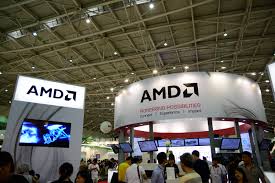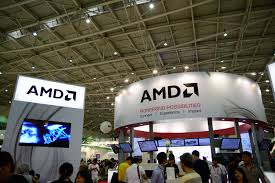
AMD collaborates with businesses, researchers, and other partners to leverage its technology in addressing some of the most urgent environmental issues globally. By gaining insight into customer computing requirements, AMD can work together to utilize its technology for significant challenges, such as enhancing climate research, supporting vehicle electrification, and bolstering power grid resilience.
Climate Research
AMD's mission is to assist researchers in understanding the interconnected factors that drive climate change and to develop strategies for mitigating its effects. By examining large and intricate datasets, scientists can uncover insights about climate change's causes and even anticipate the impacts of extreme weather, thereby aiding in life-saving measures.
Climavision utilizes 3rd Gen AMD EPYC™ processors to enhance weather forecasting through advanced data analysis. This crucial information enables sectors such as agriculture, transportation, insurance, and renewable energy to prepare more effectively for extreme weather by providing precise and timely data.
The AMD-powered LUMI Supercomputer equips climate researchers with state-of-the-art computing capabilities in their efforts against climate change. Initiated in 2022, the Destination Earth project aims to create a digital twin of the Earth by 2030, down to the square kilometer. The first phase focuses on assessing climate change impacts through specific use cases, including wildfires, energy grid composition, and urban heat island effects. The streamed climate simulation data aids in decision-making for developing strategies to adapt to and mitigate climate change. In 2023, LUMI received the Readers’ Choice Top Energy Efficient HPC Achievement Award from HPC Wire.
Power Grid and Distribution
Innovative strategies are essential for power transmission, renewable energy integration, and adaptation to the increasing frequency of extreme weather events that disrupt electrical grids. AMD's FPGAs and adaptive SoCs play a critical role in enhancing the resilience and security of power grids amid rising risks.
Schweitzer Engineering Laboratories (SEL) provides reliable power line protectors for both overhead and underground electrical lines, ensuring continuous power supply even in rural regions. The implementation of AMD FPGAs and adaptive SoCs enables utilities to swiftly locate the sources of line failures and proactively minimize downtime, thus ensuring consistent performance that meets the high standards of SEL’s demanding clientele.
Hitachi Energy is advancing High-Voltage Direct Current (HVDC) technology to facilitate efficient power transmission over extended distances. HVDC enhances energy security by integrating renewable energy sources and connecting distant power grids. AMD FPGAs and adaptive SoCs are incorporated into Hitachi’s protection and control equipment, transformers, switches, and converters, providing the necessary processing power, adaptability, and long service life for global deployment.
Electric Vehicles
As the transition to renewable energy progresses, electric vehicles (EVs) are increasingly vital in lowering carbon emissions. To meet this growing demand, EV charging infrastructure must expand, necessitating more charging stations along roadways and in parking areas. These stations also need to support quicker and more efficient charging for the next generation of EVs, an area where AMD technology is making significant contributions.
Advantech, a prominent supplier of single-board computers (SBCs) for EV charging systems and stations, aimed to create modular EV chargers that can be deployed, serviced, and upgraded efficiently and economically. Built on AMD Ryzen™ Embedded R2000 Series processors, Advantech’s SBCs provide high-performance computing and graphics versatility, enabling system integrators to enhance the design and efficiency of Level 3 rapid EV charging systems.
Eco-labels
AMD collaborates closely with Original Equipment Manufacturers (OEMs) throughout product design and post-launch to increase the number of products that achieve various eco-labels. As companies globally seek to integrate sustainability criteria into their IT purchasing decisions, they often refer to standards such as ENERGY STAR, EPEAT, and TCO Certified, among others, in their public procurement processes. Most eco-labels and certifications are assessed at the system level (e.g., a computer or server), but the processor also plays a significant role in determining a system's compliance with specific standards.
For instance, AMD assists customers in enhancing ENERGY STAR ratings by optimizing processor energy efficiency at the system level in conjunction with other components and peripheral devices. Additionally, AMD supports OEMs in achieving system-level eco-label certification through EPEAT, which encompasses environmental criteria like supply chain greenhouse gas reductions, materials selection, and environmental management system certifications.
Climate Research
AMD's mission is to assist researchers in understanding the interconnected factors that drive climate change and to develop strategies for mitigating its effects. By examining large and intricate datasets, scientists can uncover insights about climate change's causes and even anticipate the impacts of extreme weather, thereby aiding in life-saving measures.
Climavision utilizes 3rd Gen AMD EPYC™ processors to enhance weather forecasting through advanced data analysis. This crucial information enables sectors such as agriculture, transportation, insurance, and renewable energy to prepare more effectively for extreme weather by providing precise and timely data.
The AMD-powered LUMI Supercomputer equips climate researchers with state-of-the-art computing capabilities in their efforts against climate change. Initiated in 2022, the Destination Earth project aims to create a digital twin of the Earth by 2030, down to the square kilometer. The first phase focuses on assessing climate change impacts through specific use cases, including wildfires, energy grid composition, and urban heat island effects. The streamed climate simulation data aids in decision-making for developing strategies to adapt to and mitigate climate change. In 2023, LUMI received the Readers’ Choice Top Energy Efficient HPC Achievement Award from HPC Wire.
Power Grid and Distribution
Innovative strategies are essential for power transmission, renewable energy integration, and adaptation to the increasing frequency of extreme weather events that disrupt electrical grids. AMD's FPGAs and adaptive SoCs play a critical role in enhancing the resilience and security of power grids amid rising risks.
Schweitzer Engineering Laboratories (SEL) provides reliable power line protectors for both overhead and underground electrical lines, ensuring continuous power supply even in rural regions. The implementation of AMD FPGAs and adaptive SoCs enables utilities to swiftly locate the sources of line failures and proactively minimize downtime, thus ensuring consistent performance that meets the high standards of SEL’s demanding clientele.
Hitachi Energy is advancing High-Voltage Direct Current (HVDC) technology to facilitate efficient power transmission over extended distances. HVDC enhances energy security by integrating renewable energy sources and connecting distant power grids. AMD FPGAs and adaptive SoCs are incorporated into Hitachi’s protection and control equipment, transformers, switches, and converters, providing the necessary processing power, adaptability, and long service life for global deployment.
Electric Vehicles
As the transition to renewable energy progresses, electric vehicles (EVs) are increasingly vital in lowering carbon emissions. To meet this growing demand, EV charging infrastructure must expand, necessitating more charging stations along roadways and in parking areas. These stations also need to support quicker and more efficient charging for the next generation of EVs, an area where AMD technology is making significant contributions.
Advantech, a prominent supplier of single-board computers (SBCs) for EV charging systems and stations, aimed to create modular EV chargers that can be deployed, serviced, and upgraded efficiently and economically. Built on AMD Ryzen™ Embedded R2000 Series processors, Advantech’s SBCs provide high-performance computing and graphics versatility, enabling system integrators to enhance the design and efficiency of Level 3 rapid EV charging systems.
Eco-labels
AMD collaborates closely with Original Equipment Manufacturers (OEMs) throughout product design and post-launch to increase the number of products that achieve various eco-labels. As companies globally seek to integrate sustainability criteria into their IT purchasing decisions, they often refer to standards such as ENERGY STAR, EPEAT, and TCO Certified, among others, in their public procurement processes. Most eco-labels and certifications are assessed at the system level (e.g., a computer or server), but the processor also plays a significant role in determining a system's compliance with specific standards.
For instance, AMD assists customers in enhancing ENERGY STAR ratings by optimizing processor energy efficiency at the system level in conjunction with other components and peripheral devices. Additionally, AMD supports OEMs in achieving system-level eco-label certification through EPEAT, which encompasses environmental criteria like supply chain greenhouse gas reductions, materials selection, and environmental management system certifications.


 AMD's Role in Climate Research, Renewable Energy, and Sustainable EV Infrastructure
AMD's Role in Climate Research, Renewable Energy, and Sustainable EV Infrastructure




 Companies
Companies